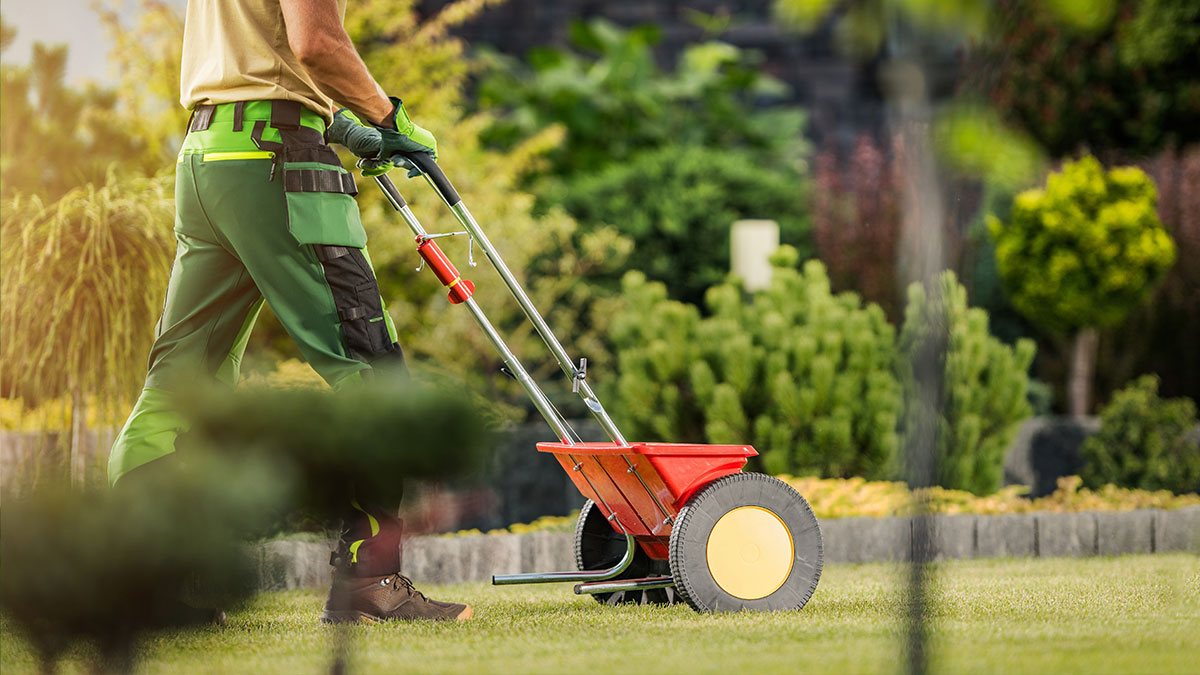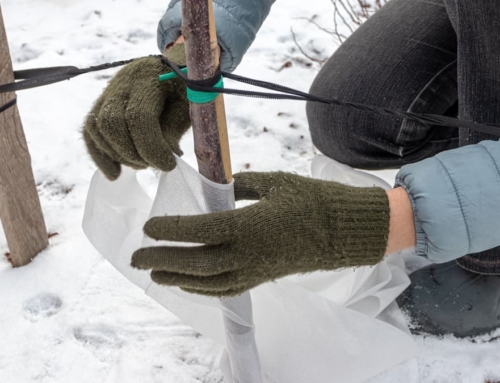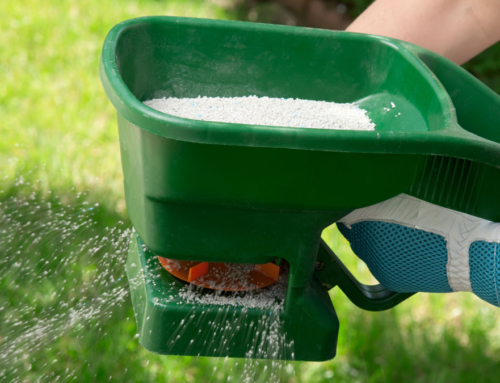ADVICE FROM OUR EXPERTS – OTC FERTILIZERS AND WEED KILLERS

Fertilizing plants is crucial to maintaining your landscaping. There are many, many fertilizers to choose from, but what does the soil really need? In a nutshell, fertilizer should supply nutrients to the soil without adding anything extra that the soil doesn’t need. In Colorado, our soil often needs nitrogen, and only occasionally will our soil need extra iron. For instance, if the grass turns yellow after a nitrogen fertilizer is applied, then an additional fertilizer that contains iron should be used.
Here are a few over-the-counter fertilizers we like for Front Range lawn care:
- Scotts Turf Builder
- Sta-Green Lawn Fertilizer Plus Iron
- Ace Hardware Brand Lawn Fertilizer
- Scotts Snap Pac Lawn Fertilizer
- Scotts Natural Lawn Fertilizer
An effective lawn fertilization program starts in early fall. Spring applications alone may promote excessive top growth, leaving shallow root systems that poorly sustain lawns during hot dry spells or harsh winters. Fall fertilizer applications on established grass promote healthy root systems and hardy lawns. Supplemental summer fertilization can also help keep grass healthy.
What’s the drawback to a flourishing landscape of plants and grass? Weeds. They can make an outdoor living space look unkept and compete with the plants for water and sunlight. When there are too many weeds to pull by hand, it might be time for a weed killer.
Here are a few things we always consider when selecting a weed killer:
- Which stage of growth is the weed in when the weed killer needs to be applied? This is commonly referred to as “emergence;” different products will treat weeds based on their stage of growth.
- Is the need for a selective or non-selective weed killer? Selectivity is the ability of a weed killer to destroy weeds but leave the surrounding plants unharmed.
- What is the process of the weed killer? Translocation products are taken up through the leaves, stems or roots of the plant. While contact weed killers don’t move through the weed once they enter it, they kill the plant by destroying the part where it was applied. Systemic weed killers move within the weed after it’s absorbed and kill the plant from the bottom up.
- Is it temporary or long-lasting? Temporary weed killers degrade in soil within a few days to weeks, which means they need to be reapplied more often than a longer-lasting weed killer, which will stay in the soil and keep new weeds from growing.
Weed killers can be toxic to both humans and pets, so their directions need to be closely followed.
These are our top picks for weed killers that keep landscapes safe and looking well-groomed:
- Spectracide Weed and Grass Killer Concentrate
- Southern Ag Amine 2,4-D Weed Killer
- Ortho Nutsedge Killer for Lawns
- The Andersons Barricade Granular Weed Control
- Green Gobbler Vinegar Weed and Grass Killer
- Doctor Kirchner Natural Weed and Grass Killer
- Ortho WeedClear Lawn Weed Killer






